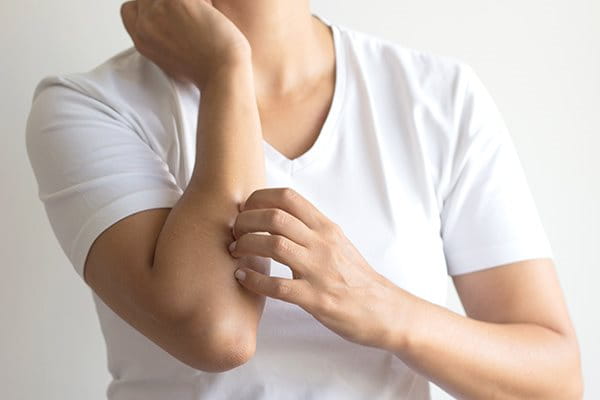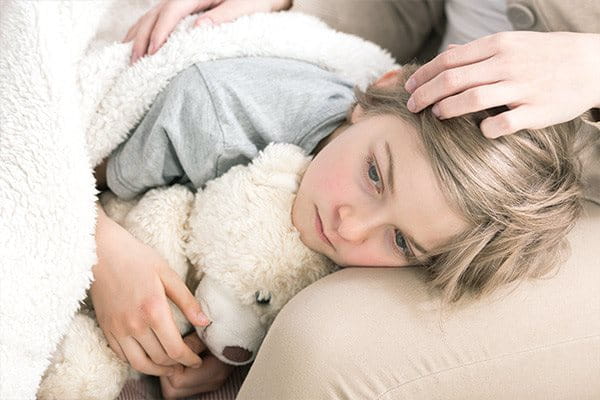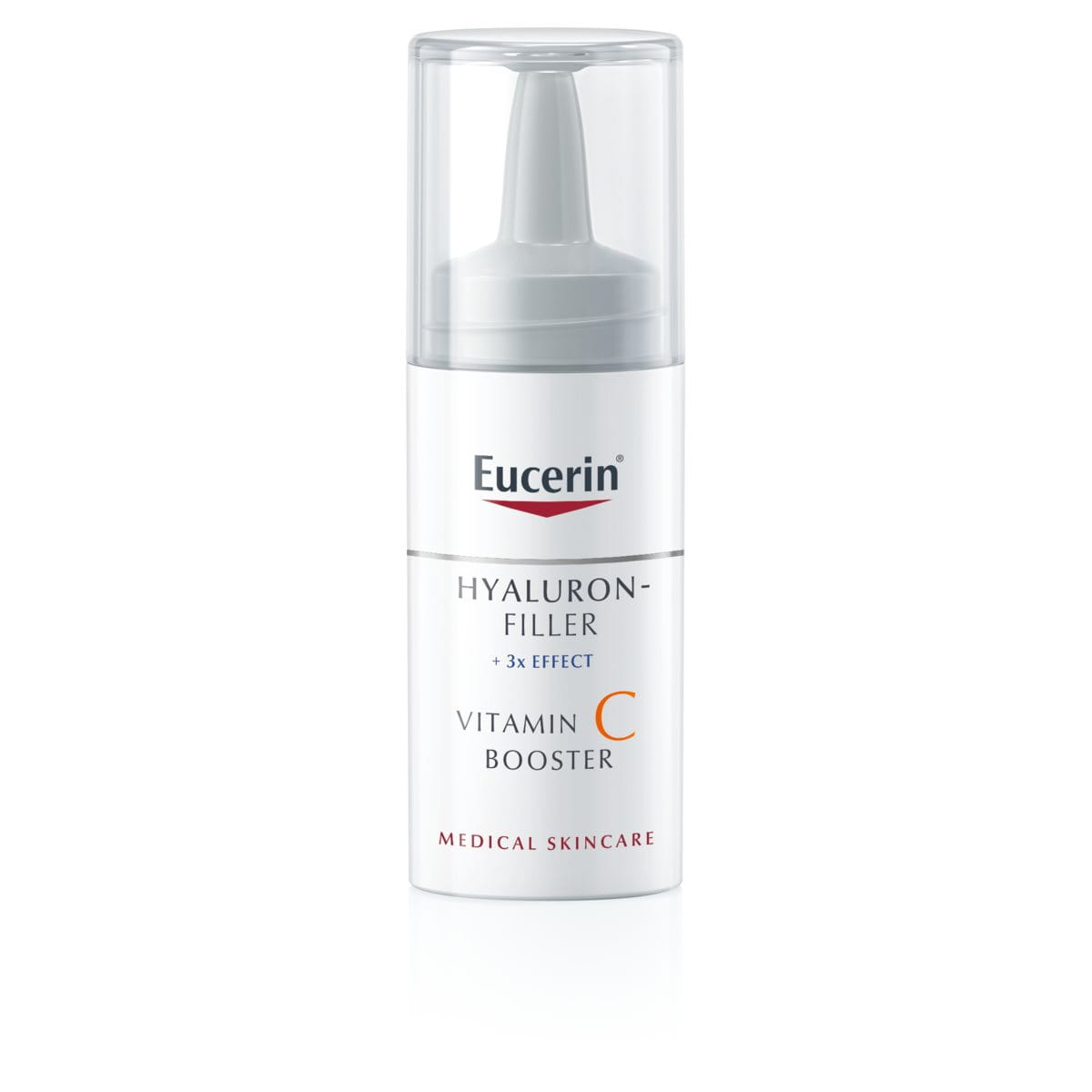Atopic Dermatitis has a significant physical and psychological impact on those whose lives it touches.
This article looks at what makes the disease so stressful to live with. We summarize research findings into the relationship between Atopic Dermatitis, a lack of sleep and a negative psychological impact and make suggestions on how to soothe and calm skin to improve overall quality of life.
What are the physical effects of Atopic Dermatitis?
Atopic skin can appear anywhere on the body, and its location can vary according to age, but wherever it appears it is dry, red, itchy and irritable. You can read more about the areas most commonly affected by Atopic Dermatitis in Atopic Dermatitis on different parts of the body and Facial Atopic Dermatitis.
It is typified by two phases:
- The acute phase when skin flares up and is at its most itchy and irritable
- The non-acute period between flare-ups when skin is calmer
You can read more about these two phases in Understanding Atopic Dermatitis and Identifying and managing flare-ups.
The acute phase is the hardest to cope with regardless of the age of the sufferer. The natural reaction to itchy skin is to scratch, but scratching only makes things worse. It spreads bacteria, intensifies the sensations of itchiness and can damage the skin. You can find out more about the flare-up phase in Identifying and managing flare-ups.
But the physical effects of a flare-up reach beyond the skin:


By day: Itchy skin can make it difficult for sufferers to focus on anything else: children with Atopic Dermatitis can struggle to concentrate at school and adults find it hard to focus at work. Children may be unable to participate fully in life (e.g. for some, the chlorine in swimming pools can trigger a reaction limiting their ability to take part). Some cases of Adult Atopic Dermatitis such as Atopic Dermatitis on the hands can make certain occupations uncomfortable, difficult and even impossible. You can read more in Atopic Dermatitis on the hands.
By night: Sufferers can find it hard to get to sleep and often wake up in the night itching. Research suggests that 60% of sufferers experience a lack of sleep caused by itchiness and soreness.1 This lack of sleep can have a considerable impact on overall mood, health and development. And, as all parents know, if their child is awake in the night they are likely to be too. Parents, carers and partners may also experience sleep deprivation
How can it effect people psychologically?
Atopic Dermatitis takes its toll mentally as well as physically. Red, sometimes raw, skin affects someone’s appearance. Constant itching makes sufferers stand out and get noticed too. These anomalies of appearance and behaviour can cause issues such as low self-esteem, difficulties in relationships with peers and partners, bullying, discrimination and social exclusion.
Living with Atopic Dermatitis can be considerably stressful. But stress itself is also a potent trigger for the disease2 potentially exacerbating symptoms and making things worse.
Attention Box
Atopic Dermatitis v Quality of Life
A recent Korean study on a sample of nearly 12,000 people found that adults with Atopic Dermatitis had significantly lower quality of life and higher stress than those without the disease3.
The mere title of a 2006 piece of research − `Quality of life and childhood atopic dermatitis: the misery of living with childhood eczema´4 − speaks volumes about the stress the disease can cause young people.

Seeing others struggle can be difficult too. The parents of babies and children with Atopic Dermatitis can end up feeling anxious, guilty, helpless and depressed. A further report concludes that the impairment of quality of life caused by childhood eczema has been shown to be greater than or equal to other common childhood diseases such as asthma and diabetes, emphasizing the importance of eczema as a major chronic childhood disease`.1
Does Atopic Dermatitis have any other affects?
The disease can also have significant financial implications for individual families and for society as a whole.1
Treatment can prove expensive for low income families and, as the disease continues to grow in the developing world this is likely to become more rather than less of a problem. Data suggests that the disease is responsible for a significant number of sickness days (days off school or work). Time wise, it puts considerable pressure on healthcare providers.
How can I reduce the impact Atopic Dermatitis has on my life?
Sadly there is no cure for Atopic Dermatitis, but there are lots of things you can do to care for your or your child’s atopic skin and help reduce and calm symptoms:
Effective medical treatment and good skincare

Research has shown that medical interference can improve quality of life measures4 and regular and appropriate skincare can improve skin condition, support sleep and improve quality of life.5
A non-medical product such as Eucerin AtopiControl Acute Care Cream can be used alongside a medical product to soothe skin during a flare-up. Eucerin AtopiControl Acute Care Cream has been clinically and dermatologically proven to considerably improve sleep and quality of life when followed by Eucerin AtopiControl Lotion.5 You can find out more in How to care for young atopic skin and How to care for adult atopic skin.
Sources
- Lewis-Jones S. Quality of life and childhood atopic dermatitis: the misery of living with childhood eczema. Int J Clin Pract. 2006 Aug; 60(8):984-92.
- Bridgett C., Norén P. (2017) Stress and Atopic Dermatitis. In: França K., Jafferany M. (eds) Stress and Skin Disorders. Springer, Cham
- Kwak Y, Kim Y. Health related quality of life and mental health of adults with atopic dermatitis. Arch Psychiatr Nurs. 2017 Oct;31(5):516-521. doi: 10.1016/j.apnu.2017.06.001. Epub 2017 Jun 2.
- Ben-Gashir MA. Relationship between quality of life and disease severity in atopic dermatitis/eczema syndrome during childhood. Curr Opin Allergy Clin Immunol. 2003 Oct; 3(5):369-73.
- Eucerin PiU study. Italy. May 2017
Avoid potential triggers
Identifying and avoiding potential triggers is another important step in delaying and reducing symptoms. You can read about the potential triggers of Atopic Dermatitis and how to avoid them in Understanding Atopic Dermatitis. If your baby or child suffers from the disease then Atopic Dermatitis in babies and children will give you advice on the triggers most commonly associated with infants and how to avoid those.
Our brand values

We deliver a holistic dermo-cosmetic approach to protect your skin, keep it healthy and radiant.

For over 100 years, we have dedicated ourselves to researching and innovating in the field of skin science. We believe in creating active ingredients and soothing formulas with high tolerability that work to help you live your life better each day.

We work together with leading dermatologist and pharmacist partners around the world to create innovative and effective skincare products they can trust and recommend.








